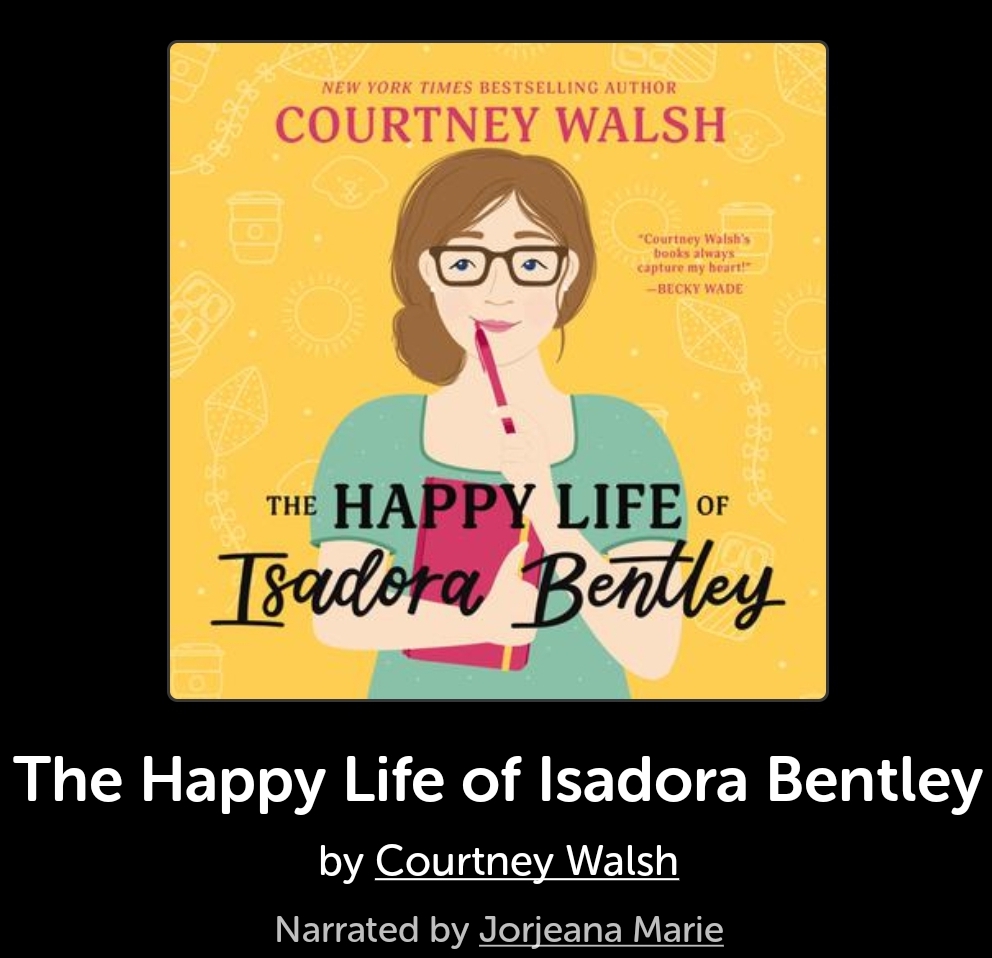In Courtney Walsh’s novel The Happy Life of Isadora Bentley, Isadora prefers to keep to herself. She never does anything social, doesn’t date anymore, and doesn’t have friends. It’s easier this way. But one day she sees a magazine with an article about how to be happy, and thinks it’s ridiculous. There’s not a formula to happiness; this isn’t real science. But Isadora is a researcher, and sets out to prove the article wrong. As she works her way through the list, though, she finds her life changing. She’s making friends, smiling more, and getting out of her comfort zone—and finding that she likes it. The deeper she gets into this research, the deeper her feelings become for her handsome coworker, and maybe—just maybe—she’s proving herself, not the article, wrong.

This was… really predictable. That’s not inherently a bad thing, I’m just saying, I knew exactly how this was going to play out. Sometimes it’s nice to have a light read, though.
That said, I still have thoughts.
This entire book hinges on the concept of happiness, specifically how to seek out and cultivate happiness. Ultimately, it lands on the conclusion that happiness is almost purely a choice. And yes, for Isadora, this is largely true, but I think the concept needs more nuance. There are some brief acknowledgements that there are complicated reasons for someone not to be happy (childhood trauma from bullying, failed relationships with narcissists, etc.), but the book often seems to be saying that people just need to get over all that and choose to move on. Sure, to an extent, that’s true. However, it feels as if this book is geared toward one specific audience, and ignores others.
Isadora belongs to a demographic (healthy, white, cisgender, heterosexual, middle-class) for whom life is made much easier by policies in America, where she lives. So yes, for her (and probably the audience this book is intended for) happiness might be as simple as deciding to just get over the hard parts of your past, as remembering to smile and exercise and eat well and talk to people who care about you. But for other more marginalized groups, happiness is more complicated, and involves all of the above and more. It is often an act of rebellion against policy, external bigotry, and internalized shame. So it’s a narrow view of “how to be happy” that this book takes. I can’t deny that its thesis will probably benefit someone from its intended audience, but I don’t think I am its intended audience.
Whew. I really got on my soapbox there for a second.
All the above aside, the romance between Isadora and Cal was pretty cute. I also liked her friendships with Marty, Darcy, and Delilah. Each person helps Isadora open up more, see what things were lacking in how she had been living life, and often provides some levity and humor to her otherwise serious, solitary life. It’s still incredibly predictable, though.
In the end, The Happy Life of Isadora Bentley breaks no new ground in terms of showing how to be happy. It’s a predictable romcom. The characters are fine, the romance is fine, the humor and friendships are fine. But to me, nothing is extraordinary, and the idea of happiness is pretty simplistic and narrow. I’m sure someone looking for a clean, wholesome, uplifting story will love it, but I’m not that person. I didn’t hate it, but it also didn’t do anything for me.
